Smartphones get hacked for various reasons — to acquire sensitive files, emails, pictures and videos, spy on users or even as a means of blackmail.
With numerous programs available that make mobile espionage easy, it’s crucial to know how to detect if your Android phone or iPhone has been compromised and what steps you can take to prevent it.
How to spot signs of hacking
Evidence suggesting that a smartphone might be monitored, spied on or bugged is often well hidden. Despite advancements in today’s spyware, there are still steps you can take to diagnose the presence of a virus or evidence of hacking on your phone.
Sudden drop in battery life and heat build-up
When a phone is tapped, it records specific activities and transfers them to third parties. Even in standby mode, your phone could be used as a listening device to capture conversations nearby.
These processes result in increased power consumption, which means your phone’s battery drains faster than normal by a noticeable amount.
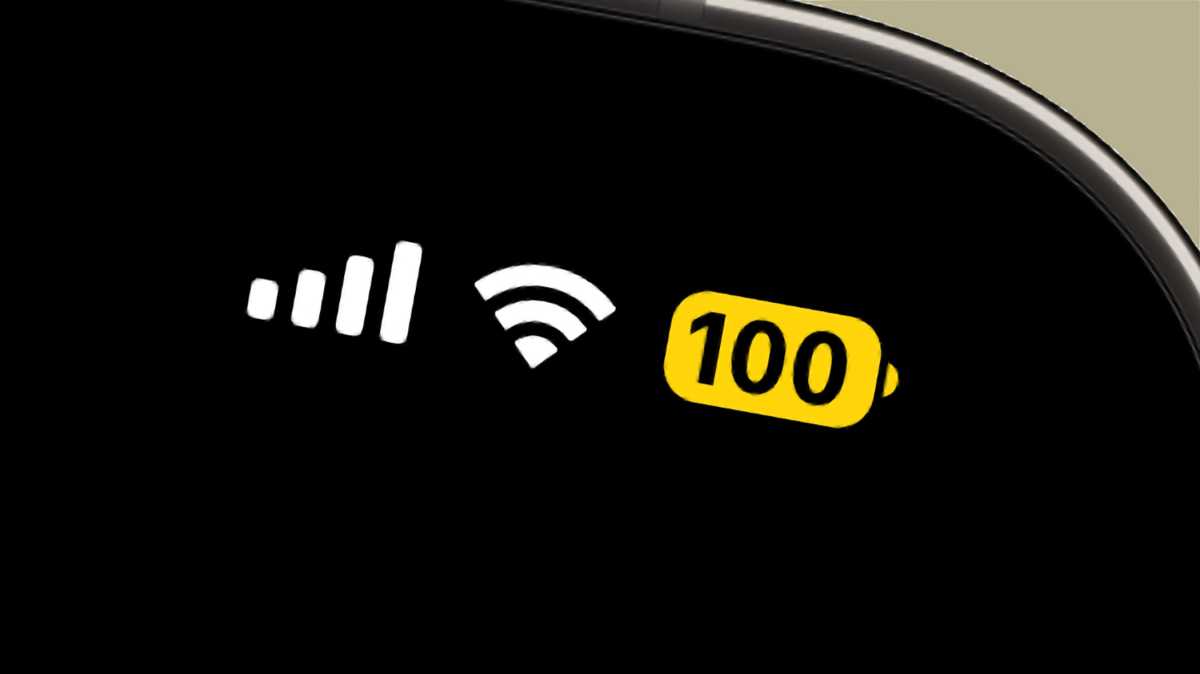
Foundry
If your phone feels warm despite minimal use, this could also indicate background processes or data transference taking place without your knowledge. The increase in battery temperature can be a strong indicator of such activity.
Activity without input
When not in use, your phone should be silent (aside from calls, notifications and alarms). If your phone makes unexpected noises, the display suddenly lights up or it restarts for no reason, someone could be controlling your device remotely.
Unusual text messages
Spyware may send secret or encoded text messages to your smartphone. If such programs malfunction, you might see these messages, which usually contain nonsensical combinations of numbers, symbols, and characters.
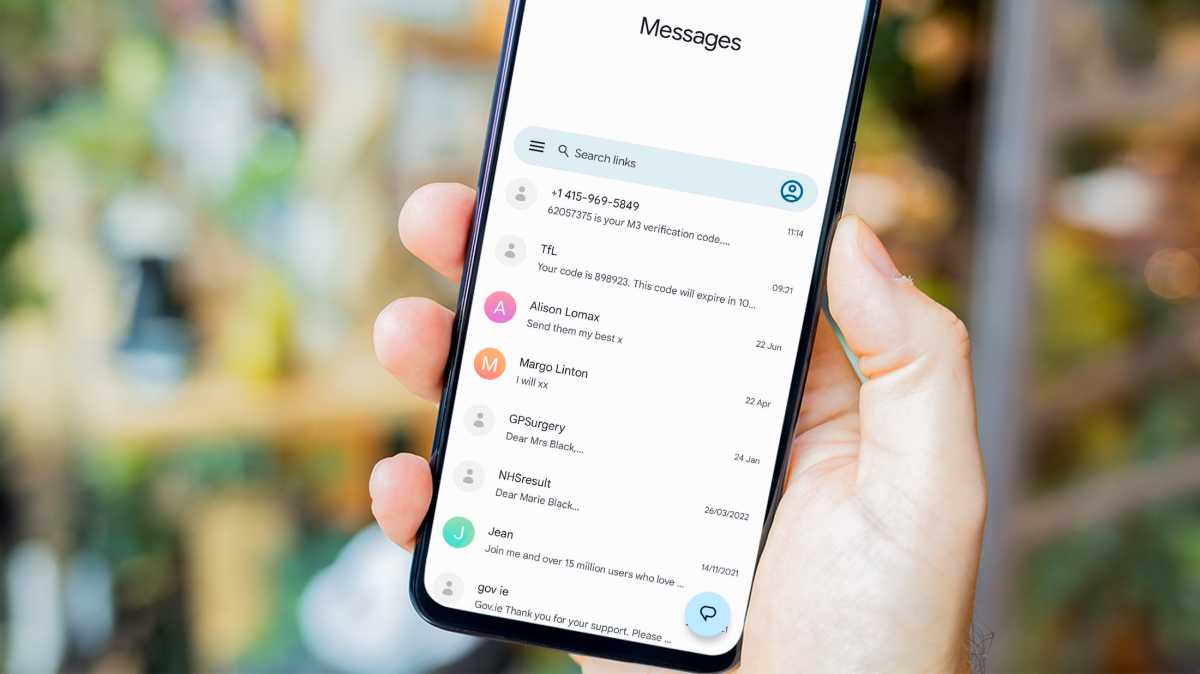
Dominik Tomaszewski / Foundry
Regular occurrences of such messages could mean your phone is under the influence of spyware.
Increased data consumption
Less sophisticated spy programs may cause data consumption to skyrocket as they transfer information from your device. Monitor your monthly data usage for dramatic increases. However, advanced spyware may use minimal data, spreading data packet usage out to remain undetected.
Noise during phone calls
Clicking, unusual background noise, or fragmented transmission of the other party’s voice during calls may indicate eavesdropping.
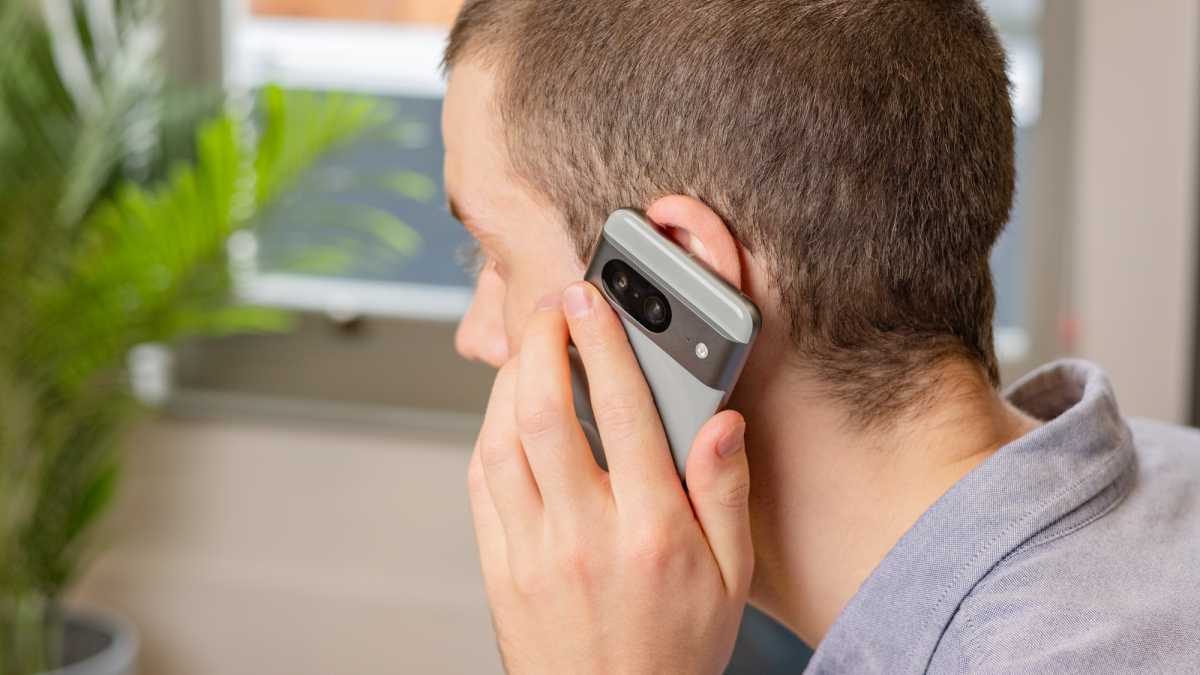
Anyron Copeman / Foundry
Since telephone signals are digitally transmitted, such noises are less likely due to a bad signal, especially if you usually have strong connectivity.
Long shutdown process
Before a phone powers off, all running processes must end. If your phone takes longer than usual to shut down, especially after a call, sending emails or browsing the internet, it could indicate data transfer to someone else.
How to identify spyware on Android or iOS
Android devices
Spy programs on Android can often be identified by the presence of certain files or folders. Look for filenames containing terms like ‘spy’ or ‘monitor’.
However, if you find such files, have your device checked by a specialist rather than attempting to delete them yourself.
iPhones
It’s harder to search through an iPhone’s directories for unsavory files. However, updating your apps and iOS itself can help remove spyware.

Foundry
Check for app updates on the App Store and ensure your iPhone runs the latest iOS version by going to Settings > General > Software Update.
However, remember to always back up important data before updating or performing a factory reset.
How to reduce the risk of being hacked
Set up a screen lock
Even a simple six-digit PIN or password can prevent unauthorised access to your device. For added security, also consider using biometric locks like fingerprint or facial recognition.
Enable two-factor authentication
Enable two-factor authentication (2FA) on your accounts to add an extra layer of security. This usually involves receiving a code on your phone that you must enter in addition to your password.
Avoid public Wi-Fi
Public Wi-Fi networks can also be breeding grounds for hackers. If you must use public Wi-Fi, consider using a Virtual Private Network (VPN) to encrypt your internet connection and protect your data.
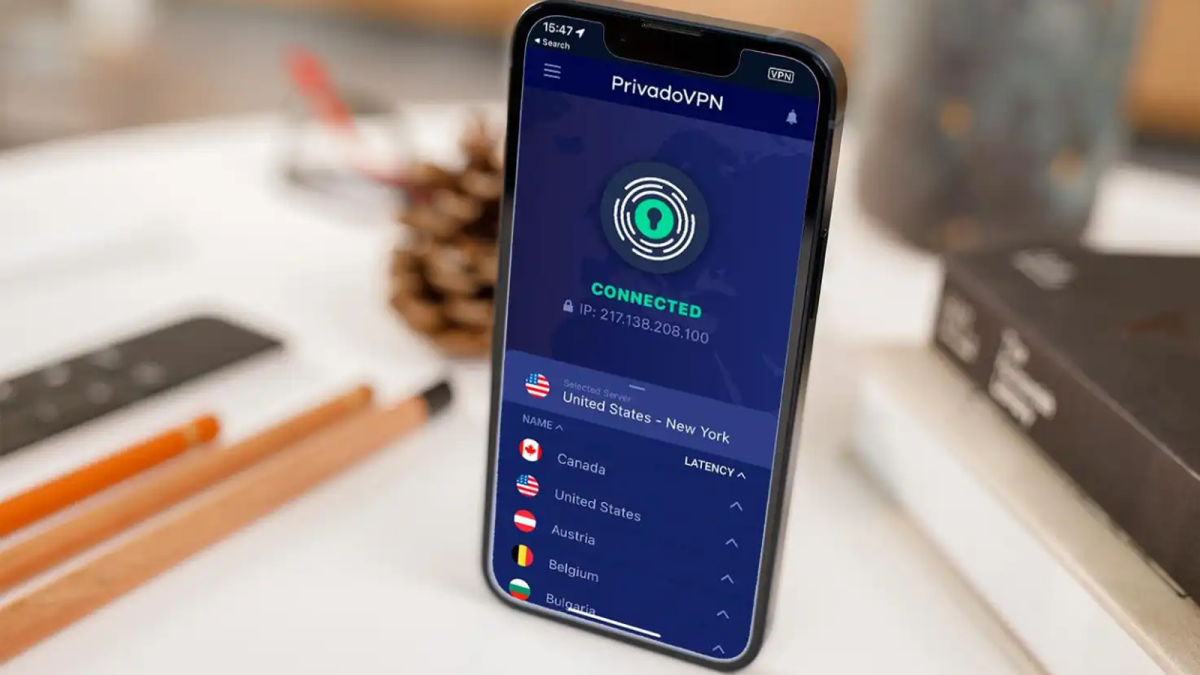
Foundry
To learn more, visit our articles about the best VPN services and the best free alternatives. We’ve also put together a guide on how to use a VPN on Android if you’ve already got one on your phone.
Use security apps
For Android phones and tablets, apps like App Notifier can alert you by email when a program is installed on your phone, warning you of unwanted activities.
Additionally, security apps and antiviruses from reputable developers can offer effective protection against hackers as well. Examples include:
- Norton Mobile Security: Provides real-time protection against malware, phishing and malicious apps.
- McAfee Mobile Security: Offers antivirus protection, secure browsing and theft prevention features.
- Avast Mobile Security: Includes virus scans, anti-theft features and app permissions management.
- Bitdefender Mobile Security: Offers malware detection, web protection and anti-theft tools.
- Kaspersky Mobile Antivirus: Provides malware detection, app lock and web filter features.
- AVG Free Antivirus: Includes virus protection, performance optimisation and anti-theft features.
We also have several articles that cover ways to increase the security on your devices, including why do you need Android antivirus and does your iPhone need antivirus software. Plus, you can see our current recommendations for the best Android antivirus apps and the best antivirus for 2024 overall. You might also want to check some of the best free antiviruses and how to scan for a virus on Android if you’ve already got one on your phone.
Be cautious with app permissions
It’s a good idea to also review the permissions requested by apps before installing them. Be wary of apps that ask for access to sensitive information or unnecessary permissions.
On Android, you can check app permissions by going to Settings > Apps & notifications > App permissions. On iOS, go to Settings > Privacy & Security > App Privacy Report. You can also go to Settings and scroll down to look through each app individually.
Regularly update your software
Ensure your operating system and all apps are up to date. Developers frequently release updates to patch security vulnerabilities.
On Android, go to Settings > System > System update. On iOS, go to Settings > General > Software update.
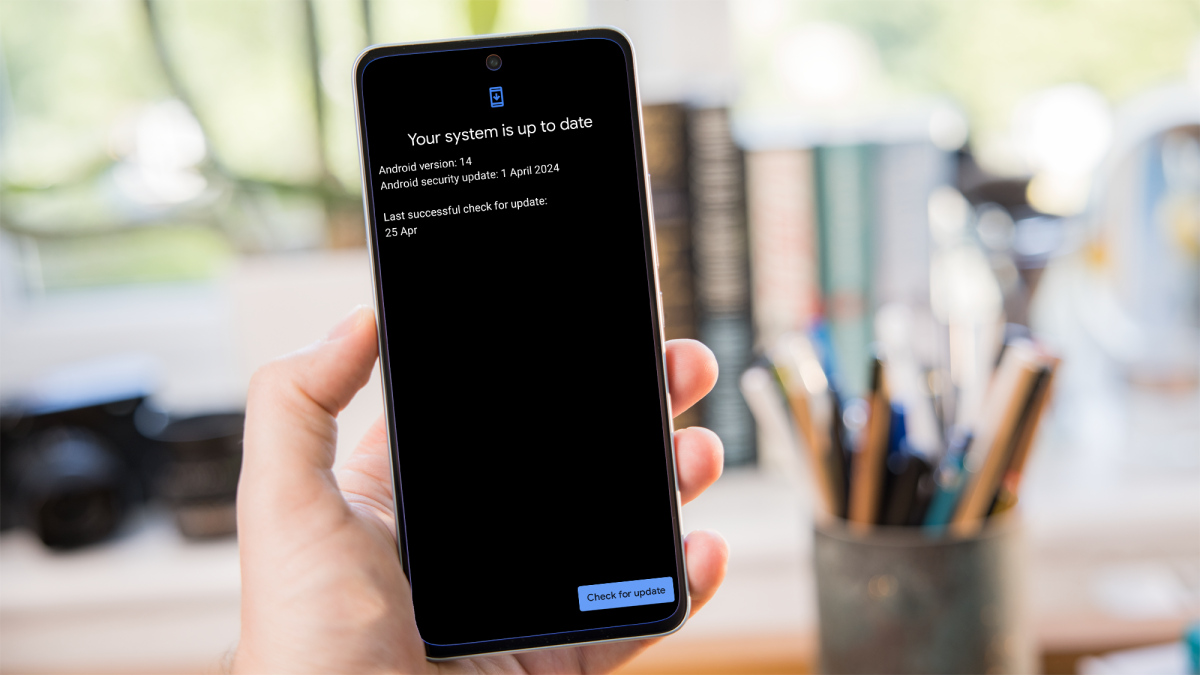
Dominik Tomaszewski / Foundry
For a more detailed steps, read our guides on how to update Android and how to update an iPhone.
Use codes to detect interception
There are specific codes you can dial to check if someone is intercepting your calls or data. Here are the known general codes for both the US and the UK.
- *#21#: Displays call forwarding status for calls, data and SMS.
- *#62#: Shows the number to which calls are being forwarded when your phone is unreachable.
- *#61#: Displays the number of missed calls.
- *#67#: Shows the number to which calls are being forwarded when your phone is busy.
- ##002#: Deactivates all call forwarding.
- *#004#: Displays all conditional call forwarding settings (busy, no reply, unreachable).
- *#06#: Displays your phone’s IMEI number, which can help track your device if it’s stolen.
- *43#: Activate call waiting.
- #43#: Deactivate call waiting.
- *#43#: Displays call waiting status.
US-specific codes
Here are codes for enabling or disabling call forwarding in popular network providers in the US.
Verizon:
- *72: Activate call forwarding. Dial *72 followed by the phone number to which calls should be forwarded.
- *73: Deactivate call forwarding.
AT&T:
- *21: Activate call forwarding.
- *22: Deactivate call forwarding.
T-Mobile:
- *004: Activate conditional call forwarding.
- ##004#: Deactivate conditional call forwarding.
UK-specific codes
Here are codes for enabling or disabling call forwarding in the best mobile phone networks in the UK.
EE and most UK carriers:
- 21 [phone number] #: Activate call forwarding.
- ##21#: Deactivate call forwarding.
Vodafone:
- 21 [phone number] #: Activate call forwarding.
- ##21#: Deactivate call forwarding.
O2:
- 21 [phone number] #: Activate call forwarding.
- ##21#: Deactivate call forwarding.
By staying vigilant and using these tips you can protect your Android phone or iPhone from hackers and maintain your privacy. Be sure to check out more of our articles on the best security picks to learn how to keep you phone safe.
